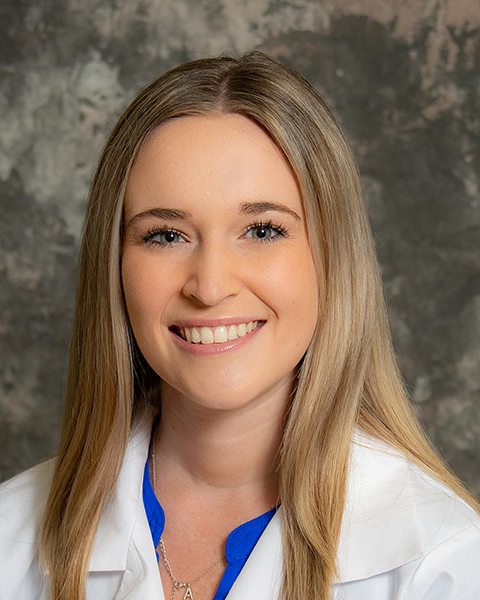
Weight Loss Surgery Near Me In Pennsylvania
Bariatric Surgery
If you are considering weight loss surgery and you live in Pennsylvania, you will want to consider the Metabolic and Bariatric Surgery Program at Penn Highlands Healthcare in DuBois. Our comprehensive weight loss program addresses your physical and emotional needs before and after surgery to ensure you are successful at meeting and maintaining your weight loss goals.
Our Metabolic and Weight Loss Surgery Program
The decision to have bariatric surgery is a serious one, but it’s only a small component of the comprehensive weight loss programs we offer at Penn Highlands Healthcare. Our team includes a highly-skilled bariatric surgeon, obesity medicine physicians, registered dieticians, and psychology and behavioral health specialists who will be by your side to support you every step of the way. We also work closely with Penn Highlands Healthcare endocrinology, cardiology, pulmonology, and sleep medicine teams to meet your individualized health needs that influence your weight loss goals. Through our Metabolic and Bariatric Surgery program at Penn Highlands Healthcare, our goals are to:
- Help patients who have failed medical weight loss programs reach their weight and health goals.
- Improve mobility and activity.
- Decrease pain caused by excess weight gain.
- Decrease or eliminate medical needs for diabetes, hypertension, obstructive sleep apnea, osteoarthritis, coronary artery disease, congestive heart failure, etc.
Succeeding With Weight Loss Surgery
We want every patient who comes to Penn Highlands Healthcare to meet their weight loss goals that will lead to improved health and quality of life. We strive to offer an individualized, but standardized approach to your weight loss journey.
Bariatric surgery is not “an easy way out.” It is an evidenced-based therapy to a serious metabolic health problem. At our Penn Highlands Healthcare weight loss, metabolic, and bariatric surgery location, we are committed to ensuring that you feel comfortable and confident during your entire journey. To help ensure your success, our mental and behavioral health experts will work with you to change your mindset about weight and food and understand the thoughts and behaviors that may have contributed to your weight gain. They’ll also teach you new coping mechanisms for dealing with stress and emotions and provide educational tools to help you achieve the most positive outcome possible.
At our Metabolic and Bariatric Surgery Program at Penn Highlands Healthcare in DuBois, we have partnered with an online bariatric surgery nutrition counseling and education program called New-Tri Health that prepares you for successful bariatric surgery and can improve your long-term success. Our obesity medicine team, surgeons and the registered dieticians will follow your progress virtually as well.
To learn more about the weight loss surgery program at Penn Highlands DuBois, watch this video with surgeon Dr. Megan Lundgren.
Weight Loss Surgery that Meets Your Needs
Oftentimes, people who are considering weight loss surgery have researched the various types of surgeries and have interest in a particular procedure. We will listen to you and work with you to choose the most appropriate and safest weight loss surgery procedure that will help you reach your goals. You do get a say in which procedure you would prefer! Our expert bariatric surgeons will discuss any specific clinical conditions you may have and why one procedure may be better than others for your unique situation.
We offer several types of bariatric surgery, including the least invasive weight loss surgery procedures. The type of surgery most appropriate for you will depend on several factors including your medical history. The procedures we offer include:
- Roux-en-Y Gastric Bypass (RYGB) restricts food intake by altering the digestive system (known as malabsorptive bariatric surgery). During RYGB, the stomach is made smaller and the stomach is connected directly to the lower portion of the intestine. Food then bypasses portions of the digestive tract that absorb calories.
- Sleeve Gastrectomy (SG), also known as Vertical Gastrectomy), removes roughly 75% of the stomach and a narrow gastric sleeve, or tube, is left for food to pass through. This procedure is done laparoscopy with small incisions. No small intestines are removed or bypassed during gastric sleeve surgery.
- SADI-S surgery (single anastomosis duodenal ileal bypass with sleeve) is a newer, simplified type of duodenal switch procedure endorsed by the American Society for Metabolic and Bariatric Surgery. Available for select patients, during SADI-S surgery, the surgeon creates a smaller “tube” or “sleeve” shaped stomach that is then directly attached to a more distal portion of the small intestine, resulting in the absorption of fewer calories.
Bariatric Revision Surgery
Penn Highlands Bariatric Surgery Program does not offer gastric banding, also known as lap band, because it hasn’t shown to have the same success for weight loss and maintenance as gastric sleeve surgery or Roux-en-Y gastric bypass. We do perform gastric band removal procedures. We also offer revisional surgery for appropriate candidates for complications of bariatric surgery or for those who have regained weight after a previous surgery. Laparoscopic and endoscopic approaches to revisional surgery are available depending on the patient’s situation.
- Lap band removal: This procedure is offered for patients who are symptomatic secondary to a slipped band, have developed esophageal dysmotility, or have regained weight after a lap band surgery and who wish to convert to a gastric sleeve or Roux-en-Y gastric bypass. We typically convert in a two-stage process (two different surgeries).
- Gastric bypass revision: Some patients develop complications after gastric bypass, such as a gastro-gastric fistula, which can cause weight regain and reflux. Other patients may develop an ulcer at the new connections – typically due to smoking or NSAID use. Other patients may have regained weight and require a “limb lengthening procedure.” Our bariatric surgeons can perform gastric bypass revision for patients who had their initial surgery at another bariatric surgery center.
- Gastric sleeve revision to bypass: This procedure can convert a gastric sleeve to a bypass and might be needed if the patient has regained weight or developed reflux. There may also be an option to convert a gastric sleeve to a SADI-S.
Why Choose PHH Bariatric Surgeons Near Me?
Penn Highlands Healthcare Bariatric Surgery Center features expertly trained and experienced bariatric surgeons to treat patients from throughout Pennsylvania. Our bariatrics surgeons have proven expertise by meeting these criteria:
- Completed an accredited residency in general surgery
- Certified by the American Board of Surgery
- Completed fellowship training in advanced laparoscopic surgery and bariatric surgery
- Maintain Membership in the American Society of Metabolic and Bariatric Surgery
- Performed at least 100 (or more) bariatric surgery procedures
Your pre-surgery and post-surgical follow-up visits may be conducted in one of Penn Highlands’ facilities outside DuBois or via telemedicine to make these more convenient for you.
Services we offer:
- Body Surgery Treatments
- Diabetes Care
- Endocrinology
- Nutrition Counseling
- Obesity Medicine
- Sleep Studies
To learn more about bariatric weight loss surgery, contact Penn Highlands Healthcare Bariatric Surgery Center in DuBois at 814-375-2037.
FAQs About Bariatric Surgery
What can I expect after Roux-en-Y Gastric Bypass or Laparoscopic Gastric Sleeve Surgery?
People who undergo one of these two most popular types of bariatric weight loss surgery can expect few complications and a relatively quick recovery. After just a 24- to 48-hour post-surgical hospital stay, you will recover at home and can return to normal activity in three to five weeks after your bariatric weight loss surgery. During this time, you will meet with your primary care provider, your bariatric surgeon, and a dietitian regularly to assess your progress and recovery. While you recover, you’ll also need to avoid taking non-steroidal anti-inflammatory drugs (NSAIDs) and smoking.
How much weight loss after surgery can I expect?
You can expect to lose 60 to 70% of your excess body weight after bariatric surgery. The majority of your weight loss will occur in the first 18 to 24 months after your weight loss surgery. After the first 24 months, you may continue to lose some weight.
Can I get pregnant after I’ve had bariatric surgery?
One of the positive outcomes of weight loss surgery is that it often helps improve a woman’s fertility issues. However, becoming pregnant too soon after surgery can be dangerous for you and your baby. We advise that you wait at least 18 months after surgery and until your weight stabilizes before trying to conceive. Because of hormonal changes brought on by drastic weight loss, your chances of conception during those first 18 months could be very high, so be sure to use a reliable birth control method.
Let your bariatric weight loss surgery team know if you are planning to become pregnant after weight loss surgery so they can provide guidance and a safe timeline for conception.
Does insurance cover bariatric weight loss surgery?
Most private insurance companies, as well as Medicare and Medicaid, recognize the serious health issues that can result from obesity and pay for bariatric surgery. However, coverage and qualifying criteria vary, so it’s important to contact your insurance provider to obtain any specific requirements and verify coverage before you start the process. Some insurance providers may require participation in a supervised weight management program or a referral from a primary care physician. Our program navigator can help you with insurance questions and will work to appeal the decision if your insurance company initially denies coverage. Some parts of your weight loss journey may not be covered by insurance, such as the vitamins you will need to take after surgery.
What else do I need to do before bariatric surgery?
To undergo bariatric surgery, you will need four main components:
- Surgical consult
- Medical clearance for surgery
- Registered dietitian
- Psychology / Behavioral health
In addition:
- You must be up to date on cancer screening according to your age and family history.
- You must be screened for obstructive sleep apnea and, if necessary, undergo a sleep study.
- You must undergo necessary preoperative laboratory studies and imaging studies as determined by the medical teams and the surgeon. These are often based on your medical history and if you’ve had any heart or lung issues or are being treated for endocrinology, nephrology, rheumatology, or gastroenterology disorders.
- If you smoke, or have any ongoing substance abuse issues, start the process of cessation as soon as possible. These behaviors are dangerous to the new anatomy and to your health, so you cannot have bariatric surgery until they are under control. You can still be seen by our team and start the program, but we cannot ask your insurance company for coverage until we have documented cessation. We offer free resources to help you on this path.
Learn more about program requirements for our DuBois program in our surgery guide.
What Steps Do I Need to Take to Start on my Weight Loss Journey at Penn Highlands DuBois?
- The first step would be to seek a referral from your primary care physician or another physician you are consulting with to improve your life through weight loss.
- After you obtain a referral, call 814-375-2037 to register for our weight loss surgery educational seminar. During this 30- to 40-minute video seminar, you will learn about our Metabolic and Bariatric Surgery Program at Penn Highlands DuBois, the procedures we offer, and the entire process from preoperative pathways through surgery and a lifetime of change. You’ll want to take notes about any questions to ask our team at your first consultation.
- You’ll then be asked to complete a questionnaire. To qualify for insurance coverage for your weight-loss surgery, our team needs to submit specific information to your insurance company, which the questionnaire provides. It also will help our team complete a risk stratification to individualize your care and determine what other specialists you will need to see before surgery.
- Next, you’ll want to call your insurance company to ask about coverage for bariatric surgery procedures. Most insurance companies cover most aspects of bariatric surgery care, but we don’t want you to be surprised after you have already started the process. Our office can help appeal any denials. Almost all insurance companies require a letter from a primary care provider or obesity medicine physician detailing failed medical weight loss attempts and the need for surgical intervention.
Penn Highlands Healthcare accepts most major insurance carriers including Medicare and Medicaid.
Please obtain from your medical doctors:
- Medical documentation of a weight history
- Documentation of diets attempted
- Documentation of weight-loss drugs
All of this information will expedite insurance approval for your surgery.
- You will then meet with specialists, which were identified in your questionnaire and your initial consultation. Our bariatric coordinator will help you to keep track of your appointments. All patients are required to have a nutritional and psychological evaluation done at Penn Highlands Healthcare. We will refer you to these appointments at your initial surgery consultation. The other required specialist assessments are determined by your personal history and physical.
These 4 categories are required before surgery:
- Surgery consult
- Medical evaluation
- Psychological evaluation
- Nutritional evaluation
From there, you’ll receive insurance approval and schedule your pre-operative clinic visit and surgery.
How long will it take between my initial consultation and having weight loss surgery?
Some insurances require a minimum of 6 months of weight loss education and lifestyle changes prior to authorizing weight loss surgery. It typically takes a minimum of 3 months from first appointment to surgery for patients who seek bariatric surgery at Penn Highlands DuBois. This is because there are required nutritional appointments, specialist consultations, and support groups that are essential to success for weight loss surgery. Most new patients can expect to schedule their initial appointment with our Metabolic and Bariatric Surgery Program at Penn Highlands DuBois within a month of their referral.
Is there anything that I can do virtually as part of the Metabolic and Bariatric Surgery Program in DuBois?
Regardless of where you live in Pennsylvania, you could be a candidate for our program through virtual appointments, which help minimize travel to DuBois. Many of our patients can participate virtually in our medical weight loss, nutritional, and endocrinology appointments as well as our monthly support group. However, it’s important to keep in mind that every patient’s needs and goals are unique, and virtual options may not be appropriate for you.
How will I need to change my eating habits after weight loss surgery?
One of the reasons bariatric surgery is such a serious decision is because successful weight loss after bariatric surgery is only possible with long-term lifestyle and dietary changes. Your bariatric surgeon and registered dietitian will provide specific guidelines about how much and what types of food you will be able to eat, but here is a general guide (which is also outlined in more detail in our Bariatric Surgery Program Guide).
- Phase 1 (1-3 days post-surgery): Sugar-free, clear liquids
- Phase 2 (for 2 weeks after Phase 1): High-protein shakes
- Phase 3 (for approximately 6-8 weeks after Phase 2): High-protein, soft/pureed foods that includes fish, eggs, dairy, poultry and legumes
- Phase 4 (until you reach your goal weight or under direction of your dietitian): High-protein foods (meat, eggs, tofu) and vegetables; avoid all fruits, breads, cereals, rice, pasta, starchy vegetables, alcohol and caffeine
- Phase 5 (lifetime): High-protein foods and complex carbohydrates in the form of whole grains, starchy vegetables, and fruit
Call to Action: To learn more about bariatric weight loss surgery, contact Penn Highlands Healthcare Metabolic and Bariatric Surgery Program in DuBois at 814-375-2037.


